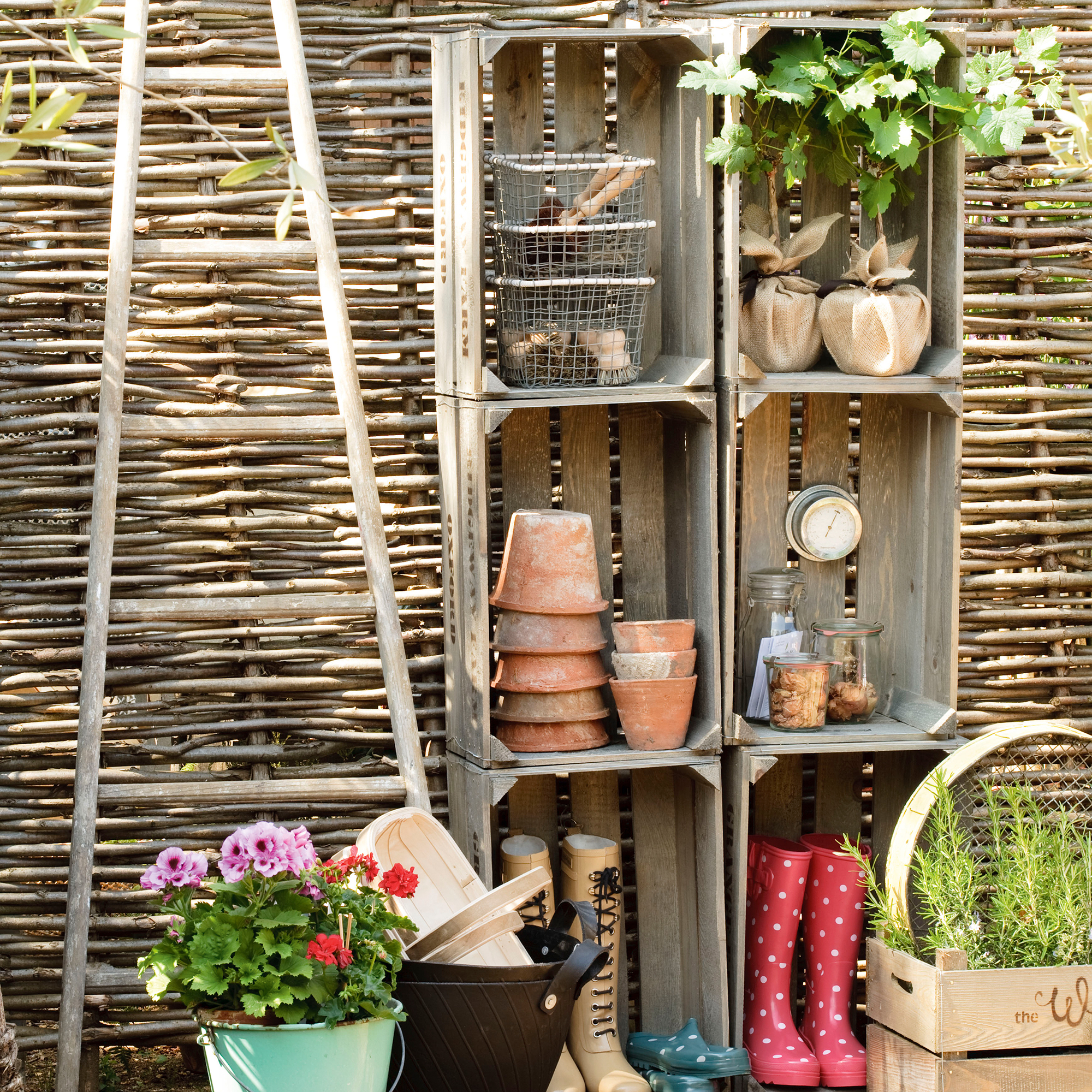
If you’re looking for things to do in the garden this bank holiday, you’re not alone. With autumn on the horizon, it’s time for novices and green-fingered gardeners alike to tie up some loose ends.
After all, we Brits love a bank holiday. And with warm, sunny weather predicted for this Monday, there’s no better time to get outside. But while you could soak up the last remnants of sunshine on your garden furniture or cook up one last storm on your best BBQ, why not give your garden some TLC before the weather turns?
Now is the perfect time to finish off those odd jobs and get your garden ready for autumn. From cutting the grass to keeping your furniture safe, we’ve put together a list of the 5 best things to do in the garden this bank holiday.
5 things to do in the garden this bank holiday
With the official start of autumn on the horizon, your garden will need a helping hand preparing for this change in weather. And if you want to keep yourself busy this bank holiday, this is what you can do.
1. Prune and deadhead the plants
If you have spring or summer flowering plants in your garden borders or flowerbeds, now is the time to give them some much-needed attention. Although many of them may still be flowering (which, in most cases, means that you shouldn’t touch them until the flowers have dropped), it’s a good idea to deadhead them as they start to wind down for autumn.
There are still some plants that will benefit from being pruned and cut back, though. For example, it’s now the perfect time to prune lavender, climbing plants such as wisteria and jasmine, and overgrown hedges and shrubs. Doing this will not only keep the plant healthy throughout the colder months but also promote new growth next year!
But instead of simply throwing these cuttings on the compost heap, there are so many things you can do to make use of them this bank holiday:
Up your tablescaping game: The tablescaping trend is still alive and kicking and a great way to use your pruned plants. Event and tablescaping expert Lavinia Stewart-Brown comments, ‘To add a bit of extra wow to your dinner party or BBQ, I always recommend preparing a fun tablescape. If people are eating and enjoying a drink whilst chatting, you don’t want overbearing flowers on the table. Try single stems (in simple colourways) in bud vases that fit the colours of candles and napkins.’
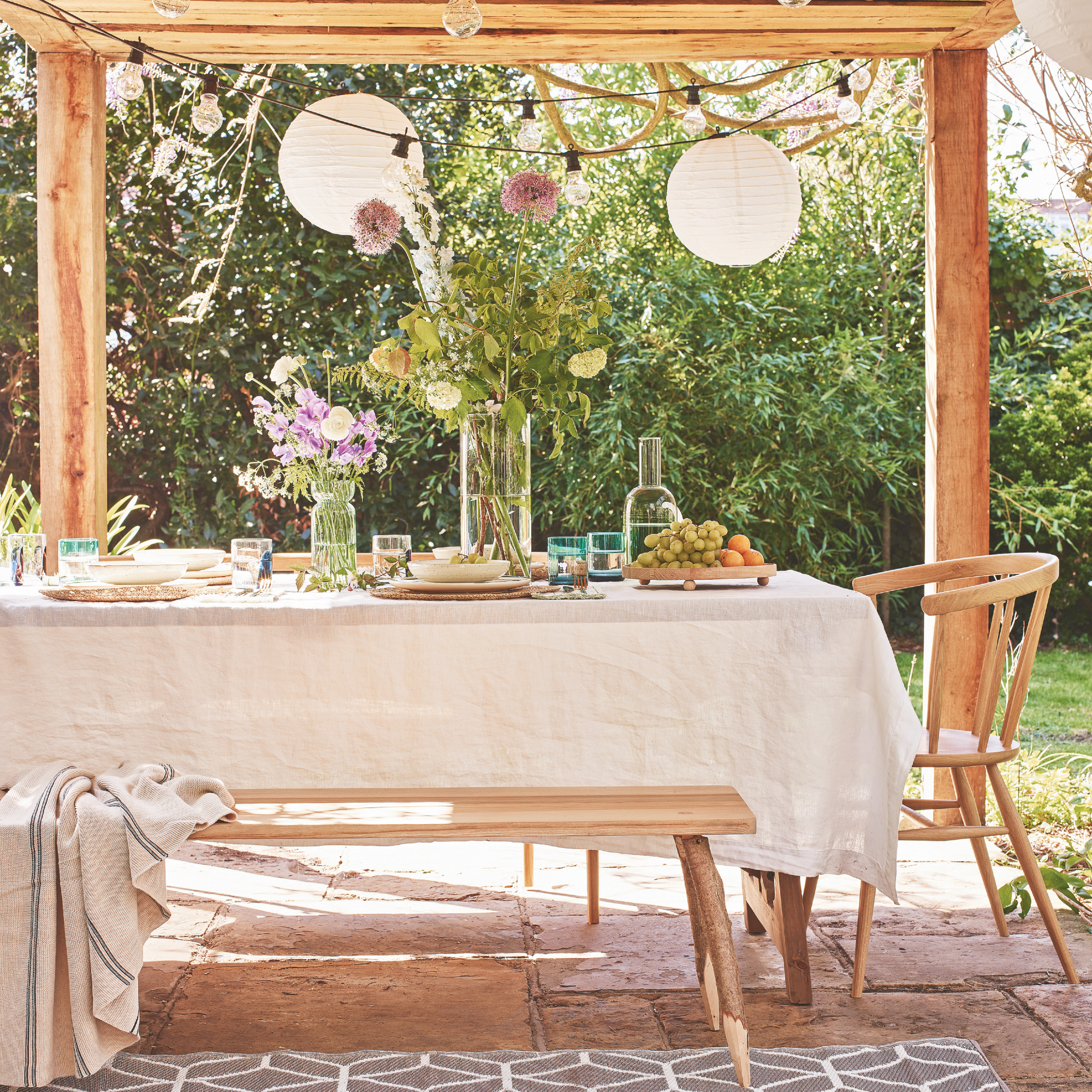
Dry your lavender: It seems a waste to throw away perfectly good lavender, which is why knowing how to dry lavender for sachets could come in super handy. Not only can they add a welcome scent to your home, but lavender also offers a calming presence that could also help you drift off to sleep.
Turn them into a bouquet: What better way to brighten up your home than adding a bouquet of your own home-grown blooms into the mix? ‘It is so satisfying to head into the garden over the long weekend and pick your OWN flowers,’ says Lauren Goodman, founder of Bluebird Creative.
‘August is a great time to prune back greenery in the garden, so you can use standalone foliage to fill bouquets or arrangements. There is no right or wrong way, and creating flowers in your home is a creative outlet and something that should bring you joy!’
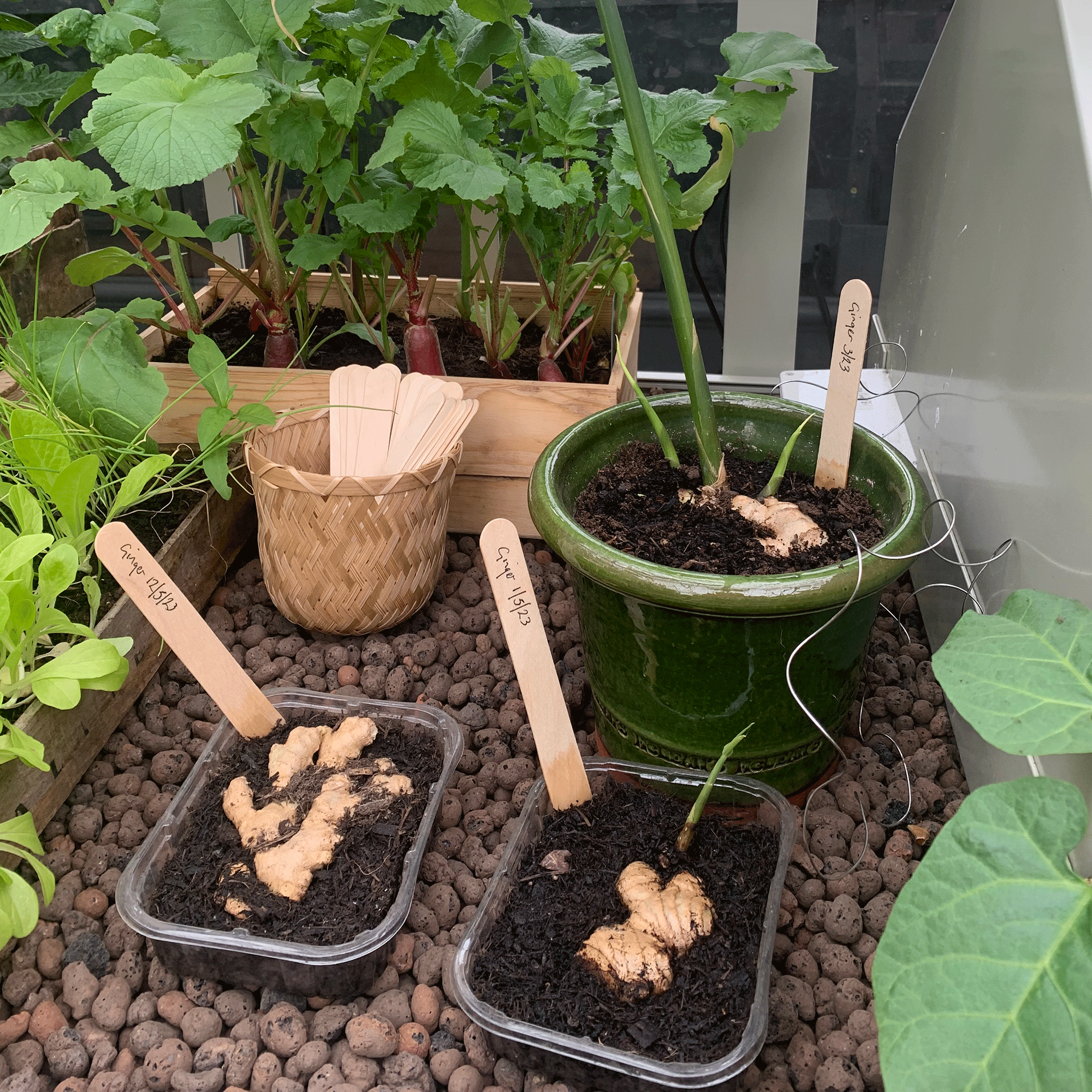
Propagate your plants: To save yourself from buying even more plants next year, why don’t you use your cuttings as a way to propagate some yourself? It’s often incredibly easy to propagate your plants, no matter whether you want to propagate lavender or propagate thyme. Just remember to do your research before you start.
Now is also an ideal time to give your fruit trees, such as a fig tree or apple tree, a good prune.
2. Order your spring bulbs
Nothing says springtime quite like having a garden full of blooms, and spring bulbs are a great way to add this colour and fragrance to your garden. But knowing when to plant spring bulbs is essential.
Although you shouldn’t actually plant your bulbs this bank holiday, there’s no harm in getting ahead of next year’s garden idea. This is the perfect time to decide what bulbs you want to plant and where - and you could even tidy up the ground or remove old plants in preparation for planting these bulbs.
When you’ve done this, you can order your spring bulbs, ready for them to be planted in September or October. Plus, this bank holiday job isn’t too strenuous, so we bet you won’t even break a sweat.
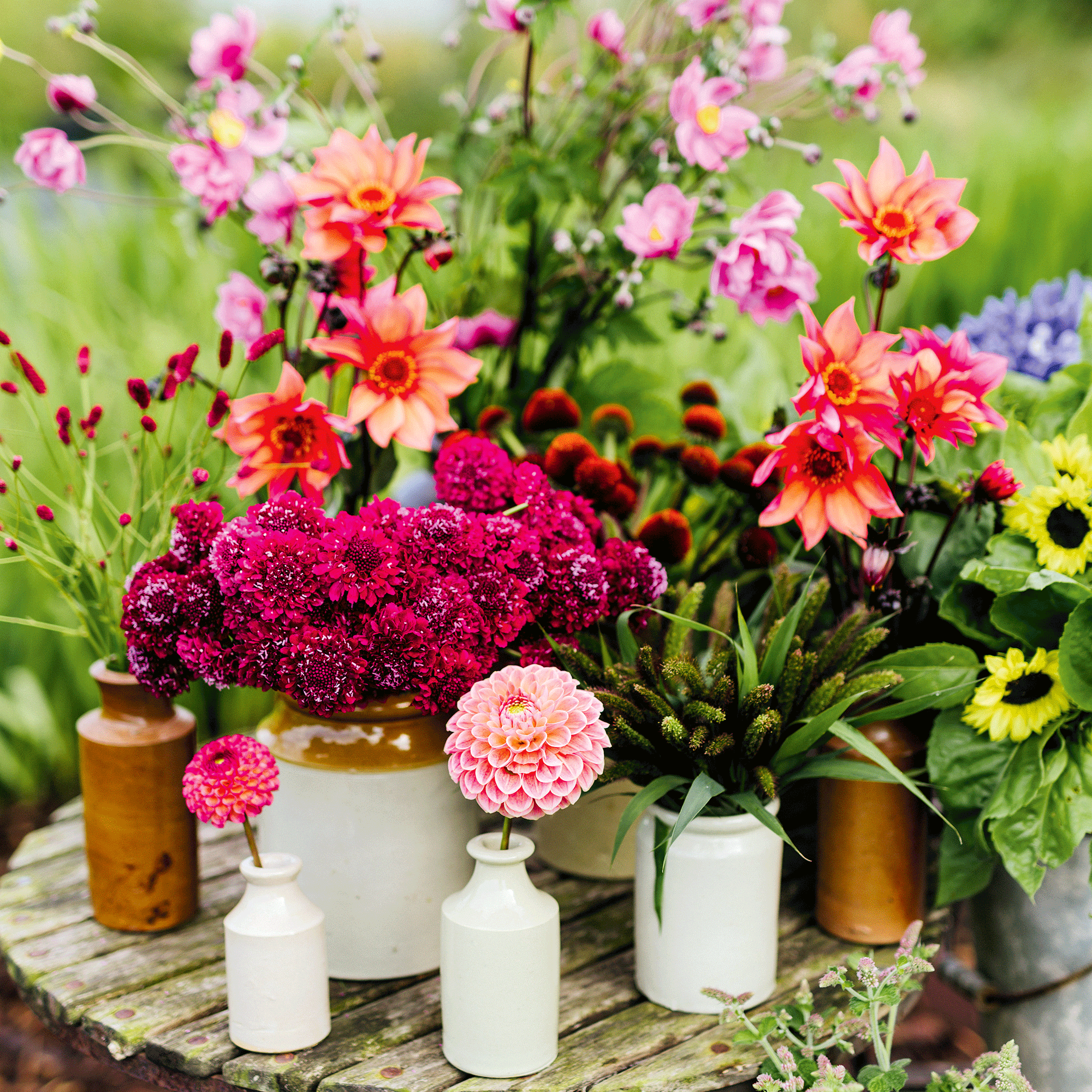
3. Tend to your grass
With such warm weather this summer, there’s a high chance that your grass is looking a little worse for wear. That’s why it makes perfect sense to take this extra day off work to tend to your lawn.
For starters, you should remove any moss or other organic matter that may have accumulated on your grass over the past few months, as well as pull out any weeds that could spread disease. If needed, you might want to treat it with a weed killer.
Then, whip out your best lawnmower and give it a good cut. Steve Chilton, garden expert at LeisureBench says, ‘If we're in for a cold September, this could be one of the final times the lawn needs to be tidied up this year.’
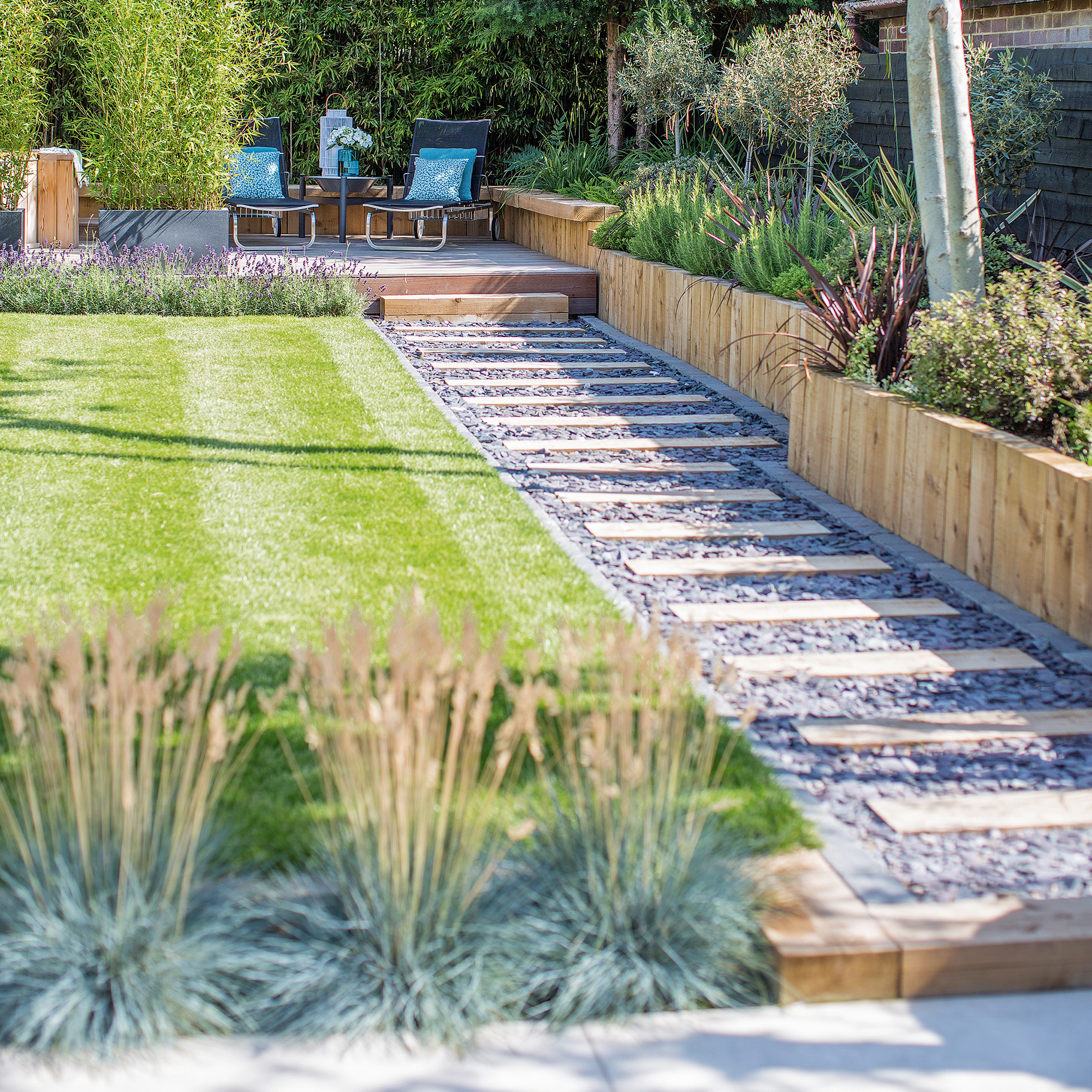
And while it can be easy to assume that you should cut your grass short for those colder months, that can actually be detrimental to its health. Instead, raise the cutting height of your lawn mower to allow for more protection from the elements.
Of course, with the unpredictable weather we’ve had over the past few weeks, your grass may be a little wet. So, check out what our experts have to say on whether you should cut wet grass or not.
And when you’ve given it a little cut, why not add in some product, too? Fertilising your lawn at the end of summer will see that it has all of the right nutrients and minerals it needs to survive the autumn and the winter. We particularly love the Miracle-Gro Evergreen Complete 4-in-1 Lawn Food from Amazon.
4. Prepare to protect your garden furniture
Although you’ll no doubt need a tea break on your garden furniture while completing these bank holiday garden jobs, that doesn’t mean that you can’t prepare your garden furniture for autumn.
Even the most weather-proof garden furniture can struggle with the rain and cold weather, which is why it’s always a good idea to invest in a garden furniture cover, or move your garden furniture to a safe, covered space. So, why not clear out your shed this bank holiday?
While you’re at it, make sure you focus on the smaller additions to your garden, too. Use a pressure washer to clear your patio of any mould or ingrained dirt, give your outdoor firepit a clean, and give your solar lights some TLC.
Brian Davenport, Co-Founder of The Solar Centre, says, ‘Any solar lights should be cleaned with warm water and soap and solar panels should be wiped down to remove any dirt or residue, and when not in use, should be stored in a cool, dry area, like a garden shed or garage.’
5. Protect vulnerable plants
Most of the time, the British weather just doesn’t make sense. One minute, it’s sunny and hot, and the next minute, we’re throwing on your thick, waterproof jackets. And while humans can just about deal with these extreme changes, some plants are a little more vulnerable.
So, it might be a good idea to spend this bank holiday protecting (or at least thinking about protecting) these vulnerable plants. It might be that you need to repot taller plants into bigger pots to give them a bit more stability, or it might be that you need to move a shrub away from a tree that will smother it with dead leaves.
Just be careful that you don’t repot or move anything when it’s in full flower, as this is a surefire way to kill your plants. Instead, wait until the flowers have dropped and follow strict replanting instructions for the specific plant you want to move.
In fact, it is best to check the growing requirements for any plants you may be worried about. If in doubt, place them in your greenhouse or even take them inside when the weather turns.
FAQs
What to do in your garden when you are bored?
If you struggle with having free time and find that you’re bored easily, there are so many ways to keep busy in the garden. You could tend to your flowers and deadhead anything that needs to be removed, or you could cut the grass to make your garden look neat and tidy.
But if you didn’t want to get hands-on, you could sit down and plan out what you want to do next in your garden. Do you want to add more colour? Do you want to add a seating area? Or do you want to add a vegetable patch? This is a great way to pass the time, and get your creative juices flowing.
What to do in garden when wet?
If you don’t mind a little rain, there’s so much you can do in the garden when it’s raining. Although it’s best to avoid cutting the grass, you could work on measures to keep slugs and snails away from your plants - as this is normally when they are most active.
Alongside this, you could also tend to your plants and cut away any dead or damaged leaves or branches. But if you don’t want to touch these wet plants, you could focus on clearing out your shed or organising your conservatory instead.







